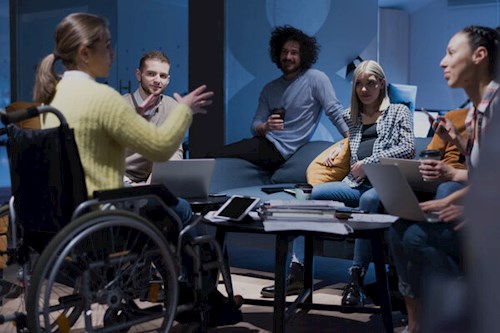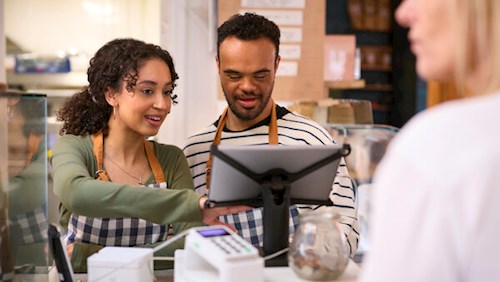Developmental disability is a broad term used to describe a range of conditions that begin during the developmental period of someone’s life. People with developmental disabilities can have long-term struggles. Examples include fetal alcohol syndrome, blindness, autism and more.
But what is developmental disability exactly? The textbook answer says it’s a group of conditions that happen from impairment within physical, learning, language or behavior.
The Cause
Most developmental disabilities are caused by a complex mix of factors, which include genetics. During pregnancy, parental health and behaviors can also play a role. But most people don’t have a clear answer as to why developmental disabilities happen.
The CDC says these are some facts known about specific developmental disabilities, which include the following:
It’s important to remember that no two disabilities are the same. Therefore, the way a person experiences a disability is different from person to person.
How You Can Include Others
The best way to learn about a developmental disability is to get to know someone who has one. Weaver’s Facebook page is full of posts to share with your group of friends and family. There are narratives of people with developmental disabilities who have overcome many obstacles and are truly inspirational to all.
So, what is a developmental disability? At Weaver, we believe it’s a person who has a passion to overcome and live life with purpose. We see, first-hand, the passion our clients have for their work.
It’s More Than a Job
“It’s More Than a Job” is a campaign we started in 2020. While the world was first being presented with COVID-19, we were coming together to adapt and overcome the obstacles from the pandemic. Our 2020 annual report explains how the Weaver team worked together.
Our goal is to promote inclusion through vocational training and employment opportunities. To learn more about “It’s More Than a Job,” visit our blog post that talks about the purpose, community and enriching experience Weaver provides to clients and employees.

Micro-internships in supported employment offer employers a simple way to create inclusive, short-term work opportunities that help individuals with disabilities build skills and confidence. These structured projects allow businesses to evaluate talent, strengthen their teams and expand opportunity while creating meaningful pathways to long-term success through thoughtful support and clear expectations.

Supported employment is about more than job placement — it’s about helping individuals set and reach meaningful goals that build confidence, independence and long-term stability. At Weaver Industries, goal setting starts with listening and turns personal hopes into clear, achievable steps, with ongoing support along the way. As individuals grow, their goals evolve, making employment not just a paycheck, but a pathway to purpose, progress and belonging.

Weaver Industries delivers supported employment by matching individuals with disabilities to jobs that align with their strengths, interests, and support needs. Through its Supported Integration® model and ongoing job coaching, Weaver creates meaningful, sustainable employment that benefits both participants and employers while strengthening inclusive workplaces.